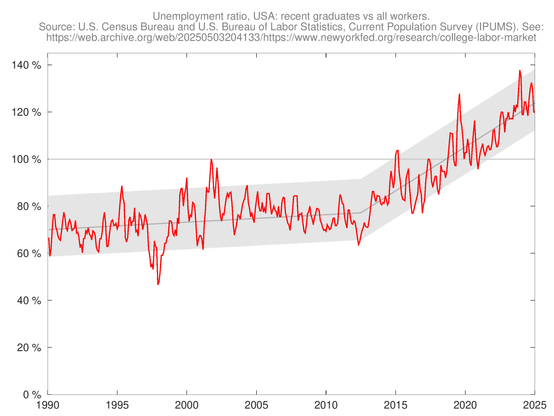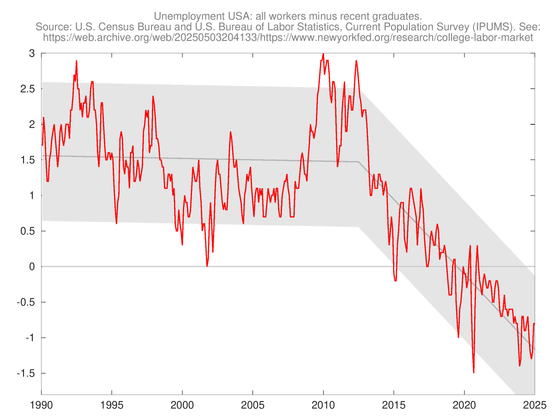3/
Although most readers may not be interested in the sources, providing links to original research (or data, here) in commentaries on technical or scientific topics would be inexpensive, and useful for some.
On the cited trend, data may be accessed at https://web.archive.org/web/20250503204133/https://www.newyorkfed.org/research/college-labor-market#--:explore:unemployment (archived version; spreadsheet https://web.archive.org/web/20250504102104/https://www.newyorkfed.org/medialibrary/Research/Interactives/Data/college-labor-market/College-labor-data tab "unemployed" → difference "All workers" vs "Recent graduates").
E.g. the unemployment ratio between recent graduates vs all workers may be plotted for comparison

